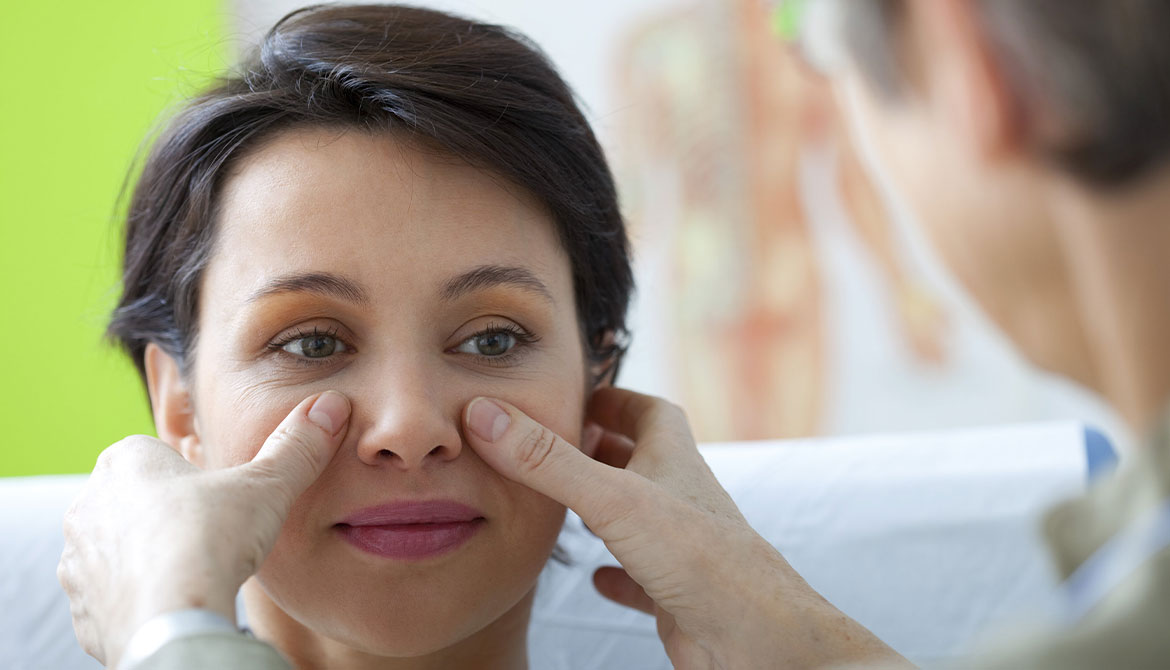What Is a Foreign Body in the Nose?
The nose is an organ divided into two nasal passages by the septum, responsible for breathing and smelling. In childhood, inserting foreign objects into the nose during play or out of curiosity is quite common.
However, similar cases can also be seen in adults with cognitive or psychiatric disorders. In rare cases, foreign objects that remain in the nose for a long time may harden due to accumulated nasal secretions, leading to the formation of a nasal stone (rhinolith).
Most Common Foreign Objects Found in the Nose
The following are among the most frequently found foreign bodies in the nasal cavity:
- Toy parts, plastic beads, small buttons
- Food items such as peas, chickpeas, beans
- Paper, cotton, sponge, eraser pieces
- Batteries (The most dangerous! Can cause tissue damage through chemical reactions)
- Small metal or wooden objects
Batteries, in particular, are extremely hazardous as they not only cause mechanical obstruction but can also chemically burn and damage the nasal mucosa. Therefore, urgent medical intervention is required in such cases.
Symptoms of a Foreign Body in the Nose
Symptoms depend on the type, size, and how long the object has been in the nose. The most common signs include:
- Nasal congestion (typically on one side)
- Foul-smelling nasal discharge (often yellow-green)
- Whistling or hissing sound during breathing
- Unilateral nosebleed
- Chronic sinusitis if the object remains for a long time
Children may sometimes admit to inserting something into their nose. However, especially in very young children, symptoms may worsen over time if the object goes unnoticed.
How Is a Nasal Foreign Body Diagnosed?
Diagnosis is made through examination and imaging techniques:
Physical examination: Some foreign bodies can be seen in the anterior nasal cavity.
Nasal endoscopy: A camera is used to inspect the nasal cavity in detail.
Radiologic imaging (CT or X-ray): Used if the object is metallic or tissue damage is suspected.
In patients presenting with symptoms resembling chronic sinusitis, the possibility of a long-forgotten nasal foreign body should always be considered.
How Is a Foreign Body Removed from the Nose?
Most foreign bodies can be removed by an ENT specialist during an office visit. However, in some cases, more advanced methods may be necessary.
Office-Based Intervention
- Foreign objects visible in the front nasal cavity can be removed with special medical tools.
- If the object is slippery or deeply embedded, suction aspirators or specially designed forceps may be used.
Operating Room Removal for Children and Advanced Cases
- If the object has been in the nose for a long time or the child is uncooperative, mild sedation or general anesthesia may be required.
- Batteries that pose a chemical burn risk must be removed urgently with careful surgical intervention.
Special Techniques
- Sometimes, the “parent’s kiss” or “blow technique” may be used under medical supervision:
- The healthy nostril is closed.
- The parent blows gently into the child’s mouth to help expel the object through the nostril.
- This method should only be applied in suitable cases and under a doctor’s guidance.
Post-Removal Care
- The healing of the nasal tissue should be monitored after removal.
- If there’s an infection risk, antibiotic nasal drops may be prescribed.
- Moisturizing sprays can be recommended if irritation or bleeding occurred inside the nose.
- Parents should remain vigilant to prevent recurrence in children.
Prevention Tips for Nasal Foreign Bodies
- Keep small objects and hazardous items out of children’s reach.
- Choose age-appropriate toys for your child.
- Never try to remove an object at home using sharp or hard tools—consult a specialist.
Conclusion
A foreign body in the nose is a common condition that can be treated easily when detected early. However, in some cases, it may lead to serious complications such as breathing difficulties, infections, and tissue damage.
If a nasal foreign body is suspected, home intervention should be avoided, and an ENT specialist should be consulted as soon as possible.
Prof. Dr. Elif Aksoy
ENT Specialist – Swallowing and Voice Disorders


